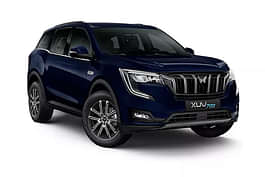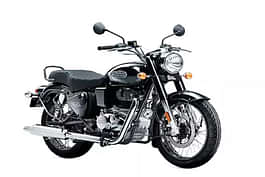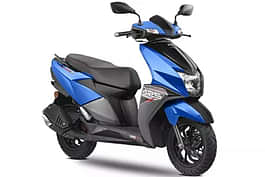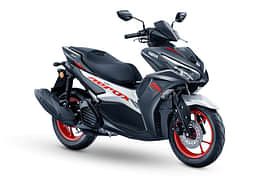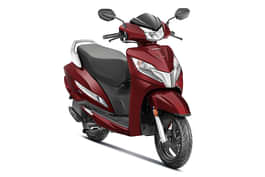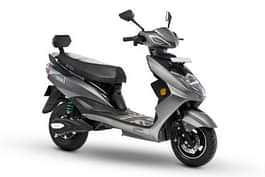
KEY HIGHLIGHTS
- Most EVs in India come with an IP67 waterproof and dustproof rating.
- Electric cars come with a battery management system that controls the charging rate.
- Tata Nexon EV, Mahindra BE 6, and Mahindra XUV400 are some of the 5-star rated cars.
The battery, a core component of electric vehicles, often becomes a central point of discussion when someone is looking for an EV in the market. Customers typically inquire about how safe they are, the range they can expect, and how long they will last. However, there are certain parameters each battery must meet to be suitable for use in a car. So, what exactly are these parameters? Let's find out. With all these questions in mind, here's a list of essential safety features you should know about. Let's dive in, and in the meantime, make sure to join the 91Wheels Whatsapp Channel to never miss out on automotive updates.
Also Read: CLA Electric Listed On Mercedes Benz India Site - Launch Soon?
IP67 Waterproof and Dustproof Rating
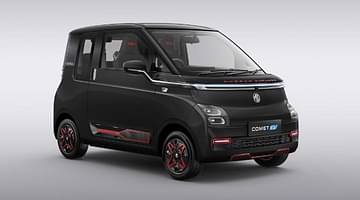
IP67 rated products give protection against water and dust, making them resistant enough to make sure they work in several conditions. For example, in rains, or in extremely dust filled area. With this accrediation, the battery will remain covered from the envoirnmental damages. Moreover, popular electric cars like MG Comet, MG Windsor, Tata Punch EV, Nexon EV and Curvv EV comes with IP67 rating.
Fire-Resitant Materials
To withstand high-temperature areas, batteries are incorporated with fire-resistant materials, ensuring that even in the worst environmental or external conditions, the battery doesn't catch fire and put the lives of passengers at risk. For example, in North India, during summers, the temperature rises up to 50 degrees, which increases the propensity for even ICE vehicles to get hotter. To combat this, some cars offer air flaps that open up whenever heat needs to be released from the car, like the Hyundai Creta Electric.

Nail Penetration Test
This test is done to check the durability of the batteries, where sharp objects, mostly nails, are directed towards the battery to check whether it gets punctured or pierced. The goal here is to check whether the internal components are in a safe position and can run for a long time. Batteries that pass this Nail Penetration Test are considered safer for real-world usage, and lastly, this test is conducted on lithium-ion batteries.
Crash Testing
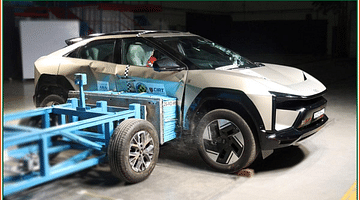
As the name suggests, crash testing the battery checks its overall robustness and whether it is designed to last longer. The crash testing of batteries also contributes to the overall safety rating of electric cars. It is performed to ensure that the battery doesn't get damaged, catch fire, or explode during a collision.
Overcharge Protection
Again, as the name suggests, this test is designed to prevent the battery from exceeding its limit, as the cells can get damaged and the lifespan of the battery reduces faster. This test monitors the charging level and automatically stops or slows down before reaching the optimal health. As a result, an auto-cut mechanism is triggered, ensuring that even if customers forget to unplug the charger, the battery won't overcharge. Automakers usually recommend charging from 20% to 80% for optimal performance and longer life. Lastly, in EVs, the battery management system (BMS) controls the charging rate.
Compliance With International Standards
Most importantly, the batteries in your car must meet international safety standards for lithium-ion batteries, and these are primarily UN 38.3 and ISO 12405. These tests evaluate long-term performance and safety. Some of the tests included are altitude simulation, thermal testing, shock testing, external short circuit, cell performance, and electrical tests. If your next EV meets these international standards, then you've opted for the best in the business.
Also Read: Top Sedans Under Rs 25 Lakh Offering Maximum Boot Space in India
Verdict
These battery safety features are essential for all electric vehicles, and it's important for buyers to verify if the car meets these standards. While some of the tests mentioned may not yet be standard in India due to the early stage of EV adoption, key certifications like UN 38.3 and ISO 12405 are often met. For more informative content, follow 91Wheels.










